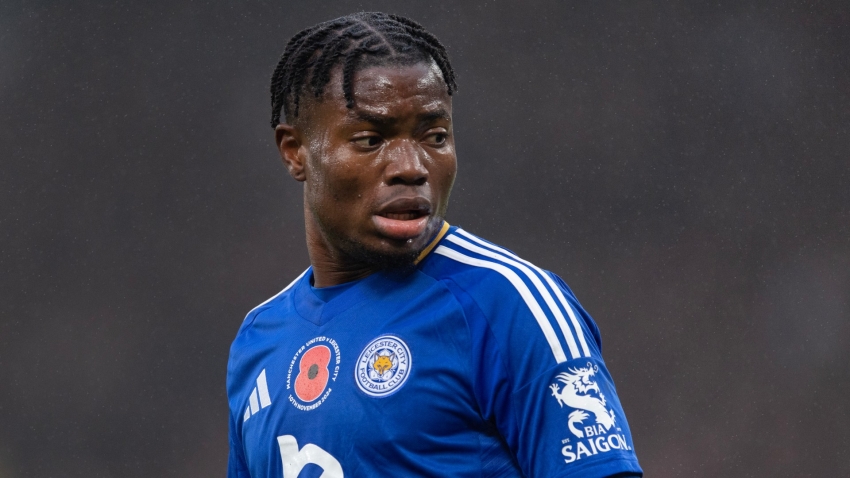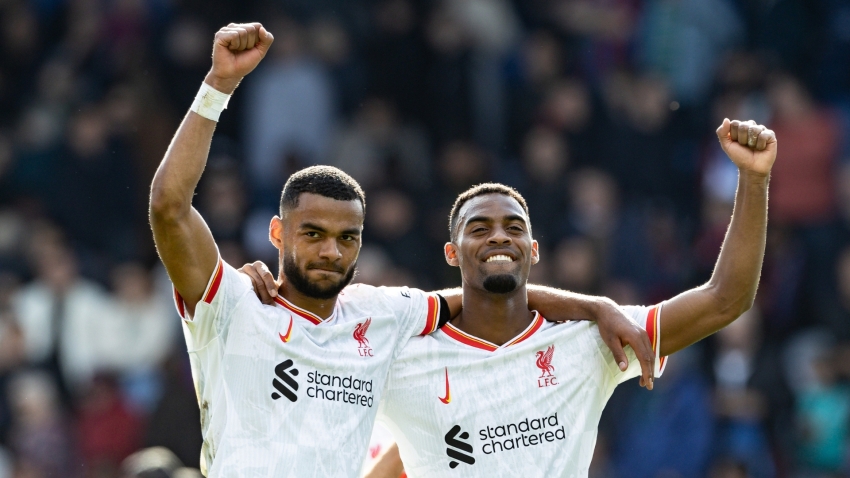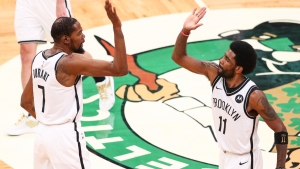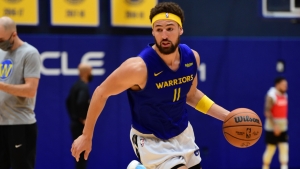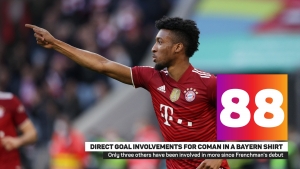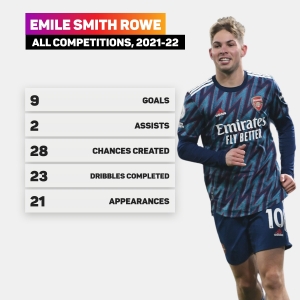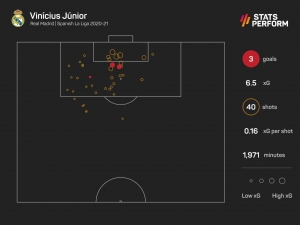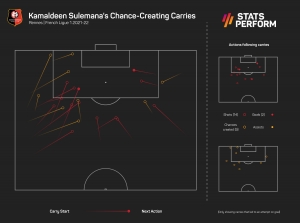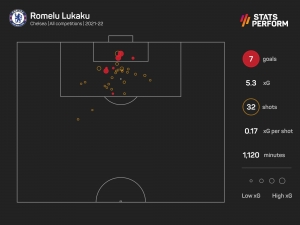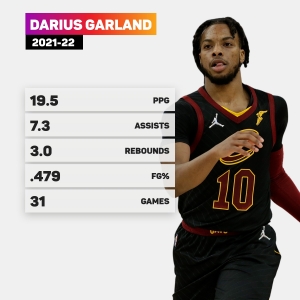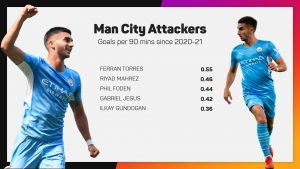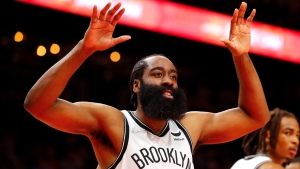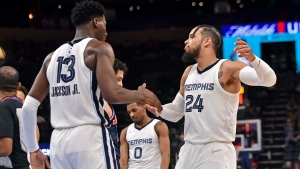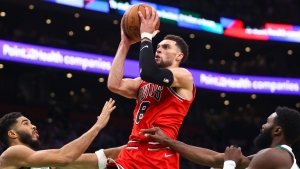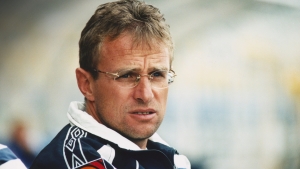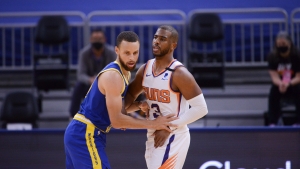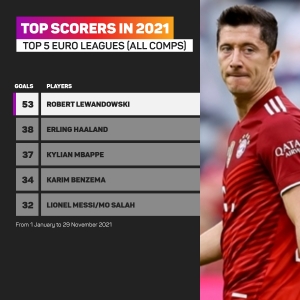For many, Ralf Rangnick's arrival at Old Trafford has come eight years too late.
Manchester United have struggled since Alex Ferguson delivered a 20th league title in his final season in 2012-13.
David Moyes, Louis van Gaal, Jose Mourinho and Ole Gunnar Solskjaer have come and gone – the latter relieved of his duties following humiliating losses to Liverpool, Manchester City and lowly Watford at the end of a trophyless tenure dating back to December 2018.
There have been Europa League, FA Cup and EFL Cup successes and a couple of runner-up finishes in the Premier League since Ferguson left, but United have never looked close to competing for the title.
A lack of direction and vision from the top at United has seen the Red Devils slip behind their rivals – the absence of a clear footballing philosophy leaving the English powerhouse stuck in the past.
But Rangnick's appointment on an interim basis until the end of the season suggests United are ready to come to the party and adapt to modern football – the most telling aspect of the former RB Leipzig boss' arrival being the two-year consultancy role he will take up following the 2021-22 campaign.
Rangnick – seen as an innovator who is known for his high-pressing philosophy and influence on some of German football's brightest minds, including Chelsea boss Thomas Tuchel – could potentially be set to oversee a long-term transformation of United after leaving his role as head of sports and development at Russian side Lokomotiv Moscow.
"The question is always what vision and philosophy do they want," former Australia international David Zdrilic – previously a player and colleague of Rangnick – told Stats Perform, with United eighth in the table and 12 points off the pace. "If they want that type of football, then he's definitely the guy that can implement that on all levels, not just the first team. He can produce that right through the club and give it a real identity. That's if they want that identity. So that's the only question really.
"But when they say, 'Yes, this is the type of football we want to play,' and it seems like it's going in that direction, then clearly you can see [that identity] with all the clubs that he's worked at. Hoffenheim is a club that he brought from scratch and now they have that clear identity. Leipzig's another one. This [United] is different because this is a big, traditional club and they already have an identity of their own. I think the football they play is very similar to that style."
Rangnick will have his work cut out with a United side well adrift in terms of pressed sequences (12th, 164), passes allowed per defensive action (14th, 14.6), high turnovers (11th, 98), kilometres covered per game (17th, 104.6), defensive actions (17th, 296) and pressures in the attacking third (15th, 589).
"When you think of the old Manchester United days under Ferguson, it was always very attacking, very exciting type of football," Zdrilic said. "So, this certainly has its similarities. So that's going to be exciting to see how that develops."
Zdrilic knows Rangnick better than most – the pair's relationship dating back to 1998.
A 30-time international, Zdrilic was signed by Rangnick during his time as head coach of 2.Bundelsiga outfit SSV Ulm, who had just stepped up from the third tier of German football. The 63-year-old left for Stuttgart before the end of the season, though the club went on to gain promotion to the top flight.
They reunited at Leipzig, where Rangnick brought Zdrilic to the emerging Bundesliga outfit as a youth-team coach over three years.
Recalling life under Rangnick at Ulm, Zdrilic said: "It was not only the football, but just the way he approached his philosophy. Basically, his philosophy was just at the forefront for him from day one, and that was something I wasn't used to. We were playing football, but we weren't really talking about tactics in that degree back then. But he was very, very convinced in his philosophy.
"When I joined, they had just come up from third division to second division. I had one year in Switzerland and then he signed me for Ulm. When we were there, I just remember one conversation I had with him and we were talking about, because we started the season really well and by the halfway point in that year we were first and he was getting a lot of attention because of the way we were playing. The German public were looking at it, going, this is a new way of playing this pressing style with a back four. Everybody was playing a sweeper back then. A conversation I had with him was about, you know, how this season's going to go. In my head, you don't go from third division to second division, then straight to first division. So, I joined in second and I sort of said something to that effect, like, 'Yeah, but you know, it's not really realistic that we're going to go straight up to the Bundesliga.' The way he looked at me was incredible, it was like, 'Why not?' But not, 'Oh, why not?' It was like looking at me like I'm stupid, 'Why not?' Then sure enough, third division, second division, Bundesliga. He did it with Hoffenheim, third division, second division, Bundesliga, and then obviously with Leipzig, he took them from the fifth division all the way to Champions League and to one the best clubs in Europe now.
"It's just incredible that he has no doubts that that's possible, whereas most people would say you can't do that. He just knows 100 per cent that this is possible and he brought that from day one. That's something I saw and it stuck with me, not only in my playing days, but then as a coach was exactly the same thing about how we approach coaching, developing players and coaches. Everything is just like he knows 100 per cent what he wants and how to do it and that conviction is why he's so successful."
At Leipzig, after spells with the likes of Hoffenheim, Hannover and Schalke, Rangnick took charge of the team in two different spells, having initially joined parent company Red Bull as director of football in 2012.
Under Rangnick's leadership, Leipzig had gone from the regional league to Champions League qualification by 2017.
Rangnick – who will become only the sixth German to manage in the Premier League – was promoted to the head of sport and development for Red Bull in 2019, before eventually joining Lokomotiv earlier this year.
Indeed, Rangnick has only faced United twice in his managerial career when in charge of Schalke, who were outclassed over two legs in the Champions League semi-final in 2011 as Ferguson's side made their third final in four years.
"His network that he's built and his ability to find talent and produce talent," Zdrilic said of Rangnick's biggest strength. "You just have to go through all the names that he's found and produced. Now just recently you've got [Dayot] Upamecano going to Bayern Munich and he was at Leipzig. [Ibrahima] Konate's gone to Liverpool. Jurgen Klopp takes a lot of the players that he's developed because it's the same principle behind the philosophy. So [Sadio] Mane is over there with him as well, [Naby] Keita he took from Leipzig. All of these guys, so many talented players and he really has a strength in finding those players and developing them and obviously selling them on to big clubs. They are huge talents.
"I think the thing about him is he has the whole package. He can step in and coach like when he did at Leipzig two times when he wanted to get up to the Bundesliga the first time. He stepped in in the 2.Bundesliga and took them straight up. Then he stepped aside and gave [Ralph] Hasenhuttl the job. Then he did it again when they needed a coach after Hasenhuttl to step in before he got [Julian] Nagelsmann. So, it's just incredible his eye for what is needed and how to correct things. Not everybody sees that at the beginning. They see the results at the end, and that's probably why he obviously controls a lot of things and a lot of aspects. So, it's going to be interesting to see how it goes, not only as the head coach, but then what happens after that in terms of his role in developing Man Utd."
Rangnick has never managed outside of his native Germany, taking charge of five different teams in the German Bundesliga in his career. The last side he managed was Leipzig, winning promotion with them from 2.Bundesliga in 2015-16 before returning to the club for the 2018-19 top-flight season and leading them to third place.
Across 294 Bundesliga matches, Rangnick has a winning percentage of 41. He first took charge in the top flight in May 1999 at Stuttgart, losing 2-0 to Bayern Munich, while his last game in charge in the competition came 20 years later in May 2019 at Leipzig, a 2-1 defeat to Werder Bremen.
His best win ratio in the competition came during his first spell at Schalke (55.4 per cent), whom he led to second place and into the Champions League.
In Europe's elite competition, Rangnick took charge of 10 games with Schalke across the 2005-06 and 2010-11 seasons – his last match in the Champions League was against Ferguson's United in May 2011 in the second leg of that season's semi-final, losing 4-1 at Old Trafford and 6-1 on aggregate. His 10 games in charge have seen 38 goals scored (20 for, 18 against, 3.8 per game), the third-highest ratio of any manager to take charge of at least10 games in the competition as the Red Devils prepare for the knockout rounds this term.
His best top-flight finish as a coach is second, achieved in 2004-05 with Schalke, a side he took over mid-season and led to a runners-up position and also to the final of that season's DFB-Pokal, ultimately losing 2-1 to Bayern.
Zdrilic added: "He's very charismatic. He can be very firm, but with the players, I remember back then he knew how to approach the individuals. With me he was very clear, but it was just always the right type of conversation.
"There was a period when I had a little bit of an injury and I wanted to get back quickly and my head wasn't focused and he knew just to put his arm around and just get me back on track. The conversation just brought me right back to where I needed to be. You hear a lot of reports about players and that kind of connection that he has with the players. But at the same time, in terms of the business dealings and what he needs to do, he's very, very direct and he gets what he wants. He is very clear about that. So he's got all sides of that character, which is again, why he's done so well."
As soon as news of Rangnick's imminent appointment broke, attention swiftly turned to Cristiano Ronaldo and whether the five-time Ballon d'Or winner can fit into the high-pressing system.
Rangnick demands hard graft from every player, so can he accommodate a 36-year-old superstar not known for his pressing from the front?
Zdrilic pointed to Rangnick's time with Real Madrid and Spain great Raul at Schalke, saying: "Now you wouldn't think of Raul as being the typical pressing player, but he played a lot under Rangnick and [scored] a lot of goals. He was able to adapt to account for players that maybe aren't going to press as much as others. I don't see that being an issue.
"It's always a challenge anyway for any manager generally, but he's certainly equipped to do that. Back in my time, right at the start, I was the guy running and doing the pressing, and I had a striker with me who was a bit older. His name was Dragan Trkulja and he scored a lot of goals. He didn't do the same amount of pressing that I did, but basically still profited from that and was very clever in that system and we were a pressing side. So I have no doubts that he's able to put all the pieces together and find a way to make this team function with his philosophy and with Ronaldo."










